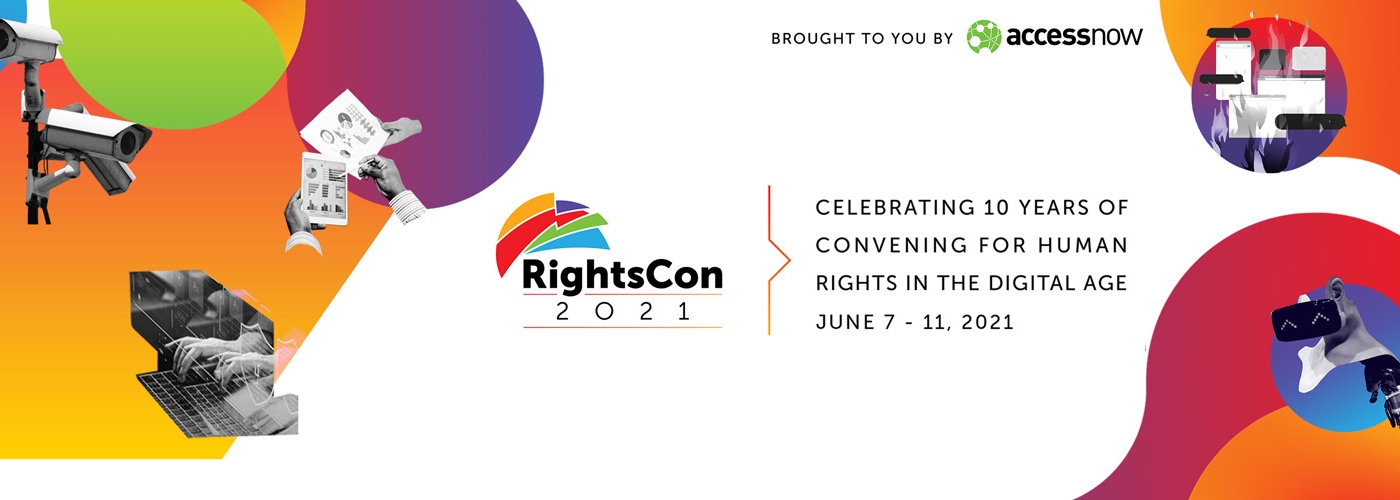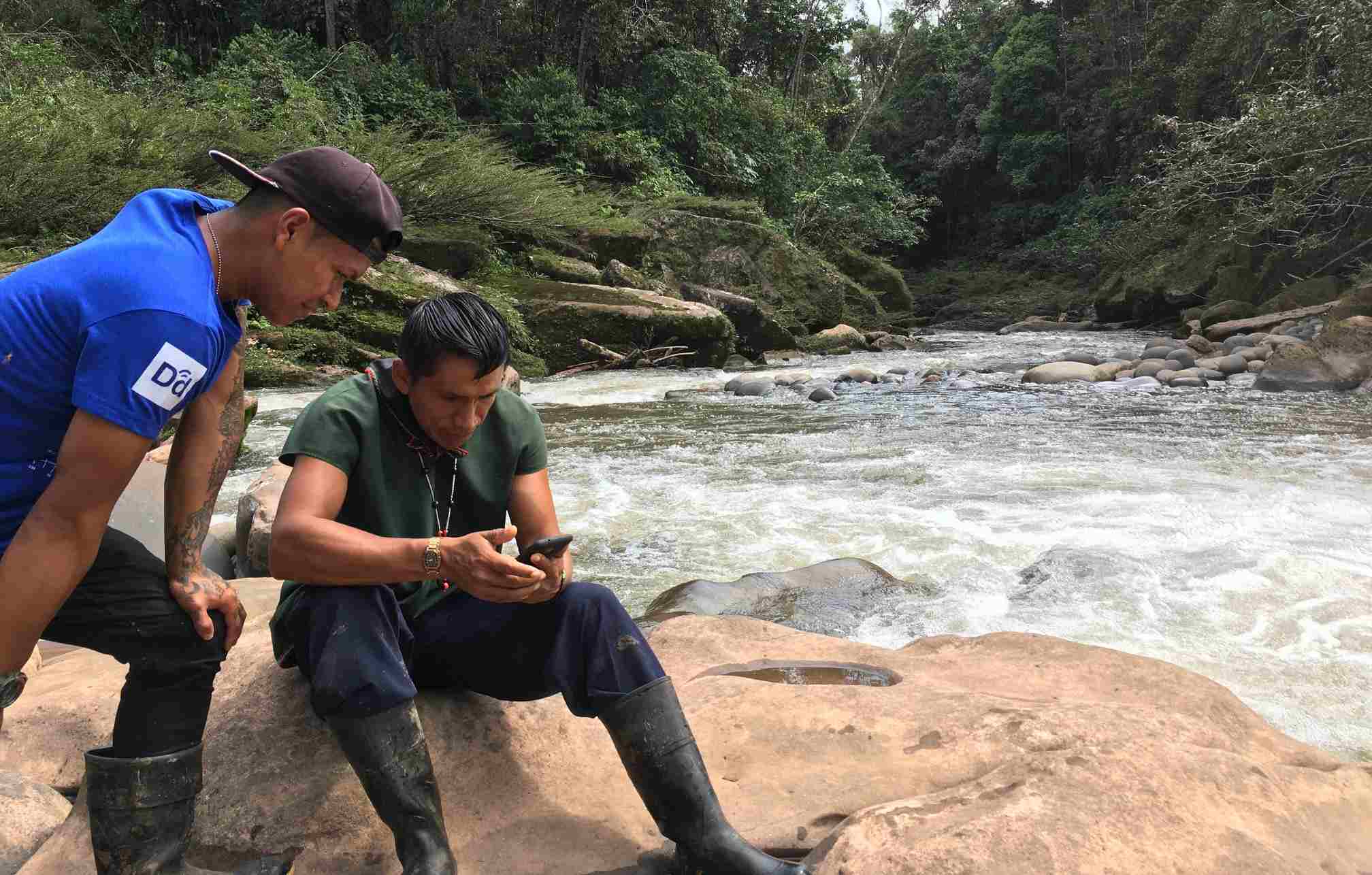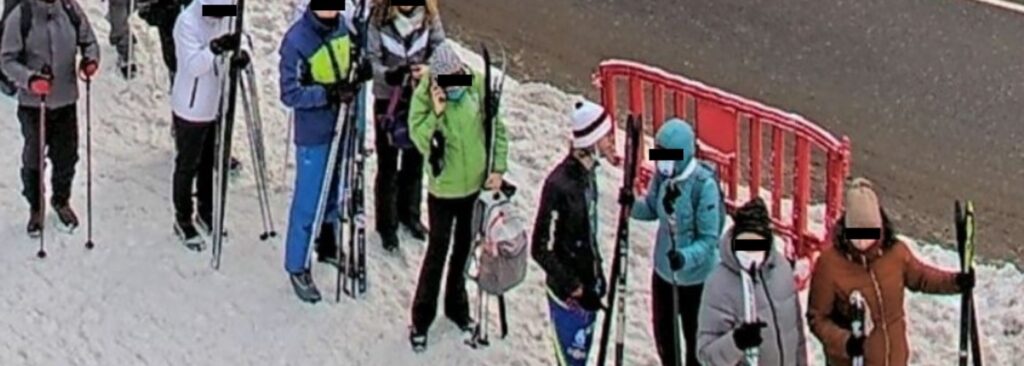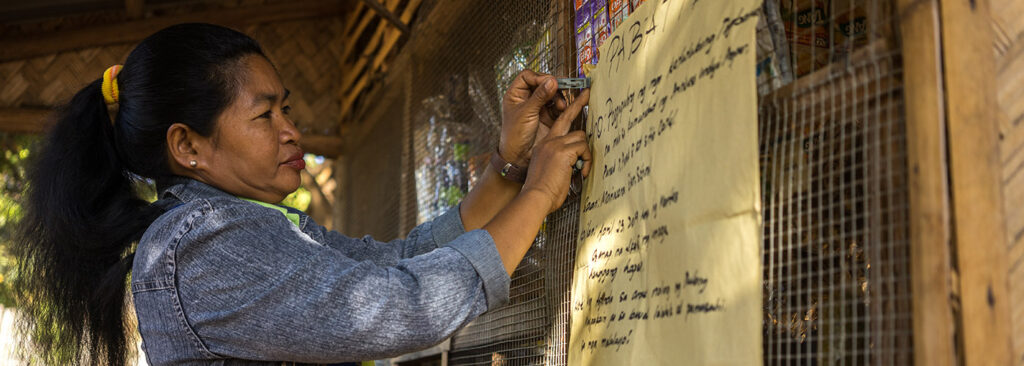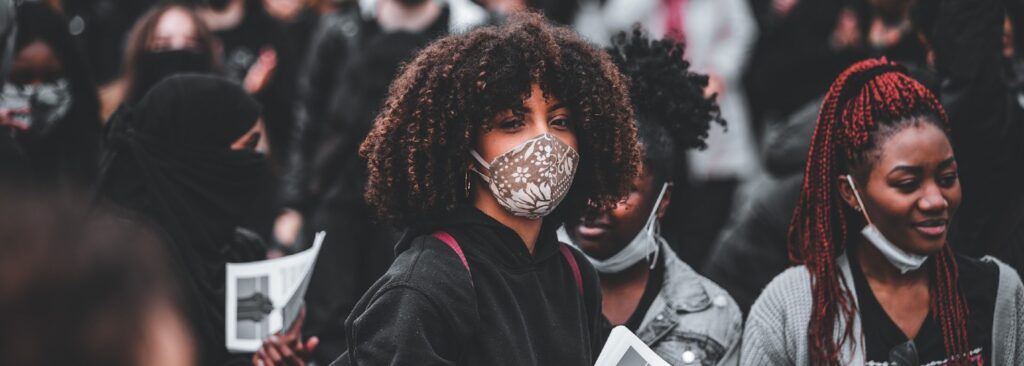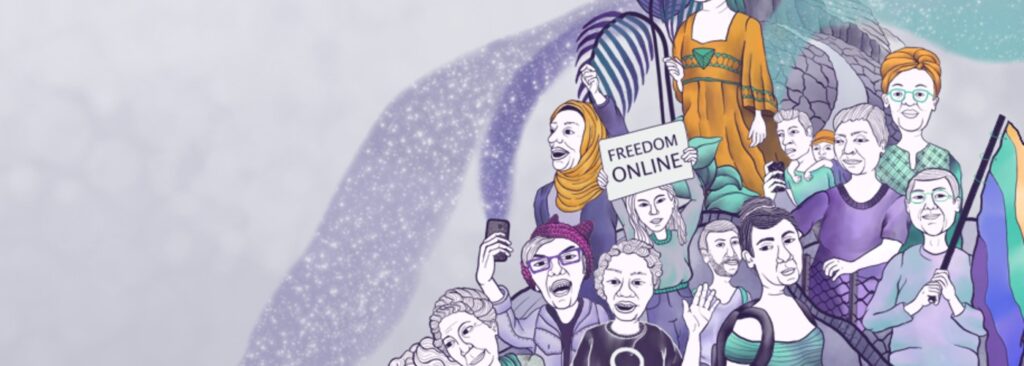The 10th anniversary edition of RightsCon is taking place next week. The (online) event brings together business leaders, human rights defenders, government representatives, technologists, and journalists from around the world to tackle the most pressing issues at the intersection of human rights and technology. Issues that are also high on Hivos’ change agenda.
This year, Hivos is (co)organizing no fewer than four sessions! Each one features experts and activists, and participants are encouraged to share their thoughts and perspectives. The sessions lay out ways to protect civil society against digital threats, assess the risks of urban digital technology, and seek to engage new allies in co-designing strategies to strengthen the power of Indigenous peoples in the Amazon.
We invite all registered participants to login and add Hivos’ sessions to your personalized schedule!
Session 1: How to respond to advanced digital threats against civil society?
Date: June 8, 2 PM – 3 PM CEST
This session introduces the work of the Computer Incident Response Center for Civil Society (CiviCERT): why and how it came to be, how it works, and how it can provide support to civil society organizations, human rights defenders, activists and journalists who face or are experiencing digital security threats.
Hivos’ Digital Defenders Partnership (DDP) is one of CiviCERT’s members. The panel is hosted by CiviCERT, DDP, Mnemonic, TibCERT and Fundacion Karisma.
Session 2: Reshaping resistance and resilience in the Amazon
Date: June 8
While the pandemic has meant challenges for everyone, everywhere, Amazonian Indigenous peoples and local communities had to also adapt very quickly to the digital sphere to continue their indispensable task of defending their rights and the Amazon from constant threats of deforestation, degradation, and multiple illegal activities.
In this Community Lab, hosted by the All Eyes on the Amazon program, we plan to share and reshape strategies to place the Indigenous and grassroots agenda on rights defense and climate action firmly on the global agenda. We’ll be holding conversations with frontline Indigenous and local leaders and with activists involved in multi-stakeholder initiatives. The themes will be: digital activism and advocacy, land defense, and learning communities.
The session will start with a five-minute pitch on the current challenges and complexities of carrying out:
- Digital activism and advocacy, led by Eriki Paiva Terena from the Articulation of the Indigenous Peoples of Brazil – APIB
- Monitoring for land defense, led by Emily Jacobi from Digital Democracy and Ramiro Ortiz from the Union of People Affected by Texaco’s Petroleum Operations – UDAPT
- Stimulating articulation and learning spaces, led by Eliana Rojas from the All Eyes on the Amazon program, Hivos.
Facilitated by: Carolina Zambrano Barragán, Climate Justice Lead, Hivos
We will proceed collaboratively and identify new ideas and innovative solutions for each theme. This session promises to be an eye-opener on the urgency of climate action in the Amazon, as well as a fresh take on the use of technology, digital strategies and multi-stakeholder approaches for Indigenous and human rights defense in a Covid-19 context.
Session 3: Surveillance in the urban space
Date: June 9, 7.30 PM CEST
Urban digital tech serves many purposes, from traffic management to improving energy efficiency and policing. While some of these surveillance technologies seem benign – and are arguably even desirable – they can also pose serious threats to human rights.
There is mounting evidence that people who are already suffering from exclusion and oppression are particularly at risk from the misuse of these technologies. In a participatory way and by engaging perspectives from different geographies, this session will explore the nature of these threats, the challenges of balancing rights, and alternatives for public policy and practice in the digital urban space. Together, we will explore how progressive actors in and outside government can anticipate and influence digital policy and practices and create alternatives to surveillance-focused digitalization of the urban space.
This interactive discussion is organized in collaboration with Edgelands Institute (Berkman Klein Center for Internet & Society at Harvard University) and Experimentalista, and will feature lightning talks by:
- Beatriz Botero Arcila (Berkman Klein Center for Internet & Society) will discuss municipal governance of digital and surveillance technologies across the US, France and Colombia.
- Rebecca Williams (Harvard Kennedy School Belfer Center) focuses on recommendations for public advocates on preventing harms posed by ‘smart city’ tech.
- Gabriella Gomez Mont (Experimentalista) will share examples of civic action for humane digital cities.
Moderated by: Conrad Zellmann, Civic Rights in a Digital Age Lead, Hivos
Session 4: Online collaboration tools: which one is right for you?
Date: June 9, 7.30 PM CEST
If the Covid pandemic has demonstrated anything, it is that there’s a need for online collaboration. But how can at-risk groups and activists do that safely? In this session, representatives from different organizations will present their findings in assessing collaborative tools, with a particular focus on video/voice communication.
Panelists will introduce the “OurVoices” initiative, started in 2020, to support groups and activists in need of a free and secure videoconferencing option. They will also explain what they take into account when assessing a collaboration tool and will share resources for individuals and organizations to help them find a tool that is right for their needs, budget, and threat model.
In addition, panelists will initiate a discussion on other secure cooperating tools, such as collaborative editing of documents and remote file storage and sharing. And they will compare free, open-source solutions with commercial tools. Given the increase of remote and “smart” working, these tools will become essential elements of people’s work environments. Participants are encouraged to share their own experiences and challenges.
The panel is organized by Access Now, APC, DDP, Front Line Defenders and IFEX.

